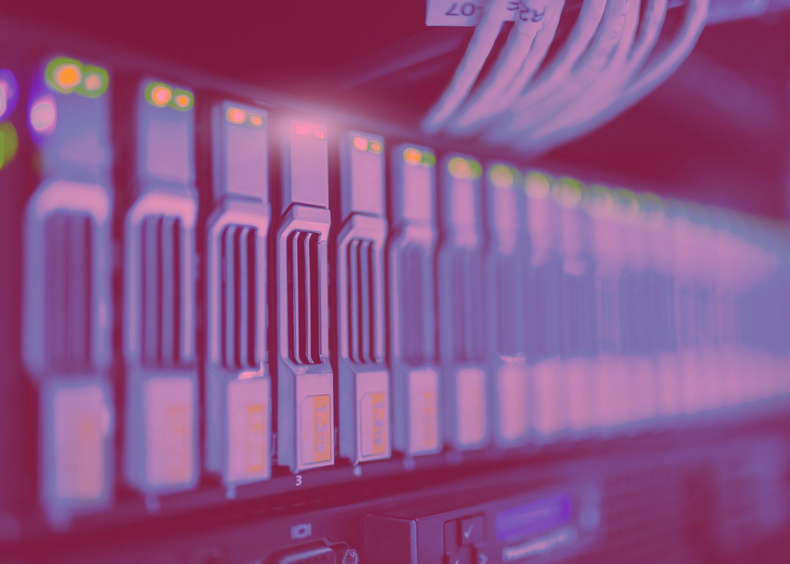Investing in IT and cybersecurity infrastructure – What should you invest in?

Written by the West Midlands Cyber Resilience Centre
IT and cybersecurity can feel overwhelming, especially when budgets are tight and jargon flies faster than you can Google what “endpoint protection” means. But getting IT right isn’t about chasing trends or buying the most expensive kit, instead it’s about making smart, practical choices that suit your business.
Whether you're a sole trader or running a small team, your infrastructure should support how you work, keep things secure, and leave room to grow. Here’s a few tips to help you make that happen.
Key areas for investment
Cybersecurity tools
The very first thing you should be thinking about is protection. Think firewalls, antivirus software, and endpoint protection.
A few basics to get started:
- Firewall – Helps block unwanted traffic coming into your network.
- Antivirus and anti-malware software – Keeps viruses and dodgy files at bay.
- Endpoint protection – Adds an extra layer of defence around individual devices, which is especially useful for remote teams.
If you're a one-man band, or just starting out, you don't need to blow the budget here, even basic, reputable antivirus tools and a well-configured firewall can go a long way. Aim for Cyber Essentials certification as a starting point. This is a government-backed scheme that sets a solid baseline.
Cloud infrastructure
Cloud solutions like Microsoft 365, Google Workspace, and platforms like AWS or Azure aren’t just for big corporations anymore. They’re flexible, scalable, and allow you to work from anywhere – something that’s become pretty essential these days.
Storing files in the cloud:
- Keeps data safer with automatic backups
- Makes collaboration easier
- Reduces the need for expensive on-site servers
Even using cloud email hosting and shared drives can be a big step forward if you're a small business that is just starting to move away from the “everything’s saved on my laptop” phase.
Hardware
If your server sounds like it’s trying to take off every time you turn it on, or your laptop takes five minutes to open an email, it’s probably time to upgrade.
Modern hardware:
- Is faster and more energy-efficient
- Supports the latest security updates
- Handles demanding applications better
Updated devices also give you better compatibility with the latest cloud tools and security software.
Benefits of strategic investment
You might be wondering is it really worth it to invest in IT and cybersecurity. The truth is it is one of the best and most important things you can do for your business. Here’s why:
- Improved performance – Faster devices and better infrastructure mean more efficient workdays.
- Enhanced security – Reducing risk from cyberattacks, data loss, or downtime.
- Future-proofing – IT moves fast, and staying on top of it keeps you competitive and compliant.
Cash-strapped? Here's Where to Start
Not everyone has the budget to overhaul their entire tech setup overnight. So, where should you put your money if it’s limited?
Start with people (even if that’s just you):
Training is massively underrated. Knowing how to spot a phishing email, how to set strong passwords, and understanding the basics of secure data handling can stop a lot of issues before they even start. If you're solo or have a small team, make sure everyone (including you) has basic cybersecurity awareness training.
The big three basics:
- VPN – Keeps your internet connection encrypted, especially important if you're working on public or home WiFi.
- Firewall and Antivirus – Basic security layers every device should have.
- Cyber Essentials certification – Gives you a checklist to make sure you’re covering the core risks.
Everyday oversights that create big problems
Security isn’t always about big tools and flashy software, sometimes it’s the everyday stuff that trips people up. Here’s a couple of things to keep in mind:
Change your home WiFi password
Many routers come with default passwords printed on the box. If you haven’t changed it, do it today.
Be picky about who gets your WiFi
Not everyone who walks through your front door needs access to your business network. If you don’t control access, you can’t control the risk. You don’t know what’s on their phones or if they’re unknowingly carrying malware.
Keep admin rights in check
If every user on a laptop has admin access, you’ve lost control. Limit this to only those who actually need it – this is important for keeping devices secure.
Use separate devices
Ideally, have different laptops for work and personal use. Mixing work data with home habits is a recipe for problems. And yes, your kids definitely need their own devices and shouldn’t be using yours if you have sensitive data on it.
Need some support with your organisation’s cyber security? Contact us today to find out how we can help.
